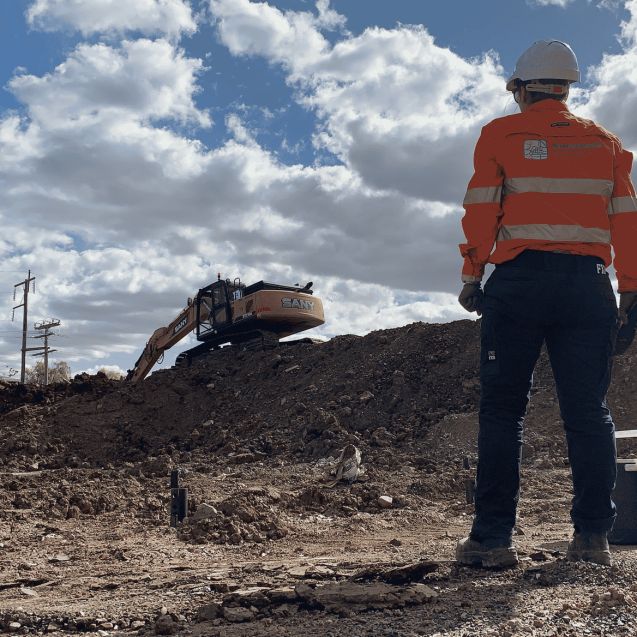In today’s world, environmental sustainability is not just a buzzword; it’s a crucial aspect of responsible business practice. As companies increasingly recognize the importance of minimizing their environmental impact, many are turning to environmental consultants for guidance environmental consultants. But with so many options available, how do you choose the right environmental consultant for your business? This complete guide will walk you through the essential factors to consider when making your decision.

1. Understand Your Needs
Before you begin your search for an environmental consultant, it’s crucial to identify your specific needs. Different consultants specialize in various areas, such as:
- Regulatory Compliance: Ensuring your business meets local, state, and federal environmental regulations.
- Sustainability Initiatives: Developing strategies to reduce waste, improve energy efficiency, and promote sustainable practices.
- Environmental Impact Assessments (EIAs): Evaluating the potential environmental impacts of your projects.
- Site Assessments and Remediation: Addressing contamination issues on your property.
Understanding what you need will help you narrow down your options and find a consultant with the right expertise.
2. Check Qualifications and Experience
When it comes to environmental consulting, experience matters. Look for consultants with a proven track record in your industry and the specific services you require. Consider the following qualifications:
- Education: Many consultants hold advanced degrees in environmental science, engineering, or related fields.
- Certifications: Look for relevant certifications, such as Certified Environmental Professional (CEP) or Leadership in Energy and Environmental Design (LEED) accreditation.
- Experience: Ask about their previous projects and clients to assess their familiarity with your industry.
3. Evaluate Their Reputation
A consultant’s reputation can provide valuable insights into their reliability and effectiveness. Consider the following steps to evaluate their reputation:
- References: Request references from past clients to learn about their experiences and satisfaction with the consultant’s services.
- Reviews and Testimonials: Look for online reviews or testimonials to gauge the consultant’s reputation in the industry.
- Professional Affiliations: Membership in professional organizations can indicate a commitment to best practices and ongoing education.
4. Assess Their Approach
Every consultant has a unique approach to environmental issues. When evaluating potential candidates, consider how they align with your company’s values and goals:
- Communication: Effective communication is essential. Choose a consultant who listens to your concerns and clearly explains their strategies.
- Customization: Look for a consultant who tailors their services to your specific needs rather than offering a one-size-fits-all solution.
- Collaboration: A good consultant should be willing to work with your internal team and other stakeholders to ensure a cohesive approach to environmental management.
5. Understand the Costs
Cost is often a significant factor in the decision-making process. While it’s essential to stay within budget, it’s equally important to consider the value you’ll receive. Here are a few tips:
- Get Multiple Quotes: Request proposals from several consultants to compare costs and services.
- Assess the Scope of Work: Ensure that the proposed scope of work aligns with your needs. A lower cost may come with fewer services or less experienced staff.
- Evaluate Long-Term Benefits: Investing in a high-quality consultant may lead to long-term savings by avoiding fines, improving efficiency, and enhancing your company’s reputation.
6. Ask About Technology and Tools
In the modern age, technology plays a crucial role in environmental consulting. When evaluating potential consultants, inquire about the tools and technologies they use to assess and manage environmental issues:
- Data Management: Effective data management systems can improve project tracking and compliance reporting.
- Modeling Software: Advanced modeling tools can provide valuable insights into environmental impacts and remediation strategies.
- Monitoring Solutions: Consider whether the consultant offers real-time monitoring solutions for ongoing compliance and sustainability efforts.
7. Look for Innovation
Environmental challenges are continually evolving, and the best consultants stay ahead of the curve. Look for consultants who demonstrate a commitment to innovation and continuous improvement:
- Research and Development: Some consultants invest in R&D to develop new solutions and practices.
- Sustainability Trends: A knowledgeable consultant should be aware of current sustainability trends and how they may impact your business.
8. Trust Your Instincts
Finally, trust your instincts when choosing an environmental consultant. A strong working relationship is essential for success, so it’s crucial to find someone who aligns with your company culture and values.
Conclusion
Choosing the right environmental consultant for your business is a significant decision that can impact your operations and reputation. By understanding your needs, evaluating qualifications and reputation, and considering costs and innovation, you can make an informed choice. With the right partner, your business can navigate the complexities of environmental management while promoting sustainability and compliance.
4o mini